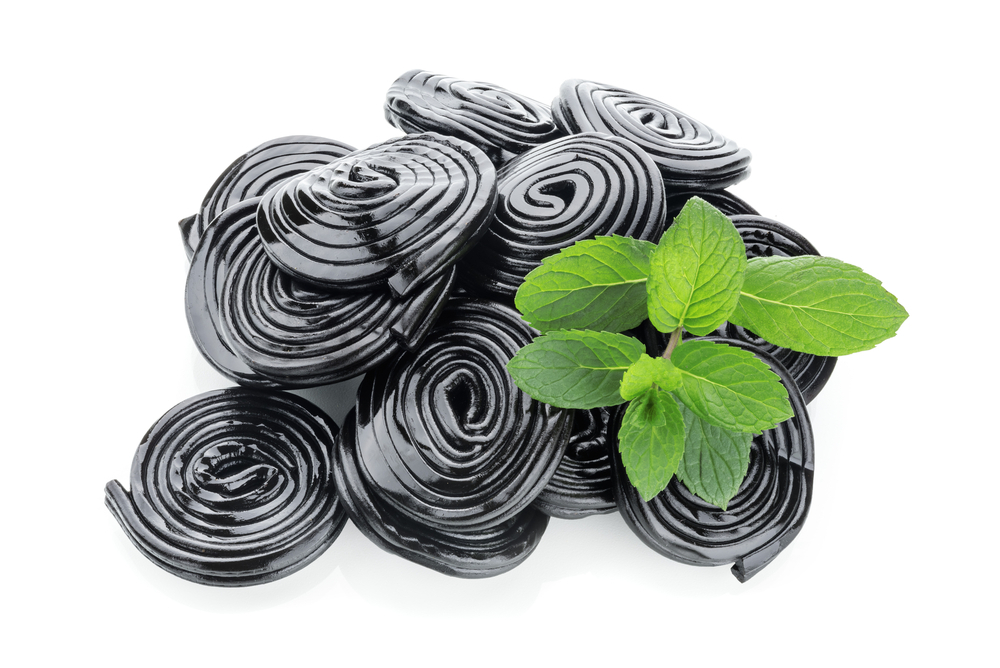Here's Why Pregnant Women Should Avoid Eating Licorice

Get the world’s most fascinating discoveries delivered straight to your inbox.
You are now subscribed
Your newsletter sign-up was successful
Want to add more newsletters?

Delivered Daily
Daily Newsletter
Sign up for the latest discoveries, groundbreaking research and fascinating breakthroughs that impact you and the wider world direct to your inbox.

Once a week
Life's Little Mysteries
Feed your curiosity with an exclusive mystery every week, solved with science and delivered direct to your inbox before it's seen anywhere else.

Once a week
How It Works
Sign up to our free science & technology newsletter for your weekly fix of fascinating articles, quick quizzes, amazing images, and more

Delivered daily
Space.com Newsletter
Breaking space news, the latest updates on rocket launches, skywatching events and more!

Once a month
Watch This Space
Sign up to our monthly entertainment newsletter to keep up with all our coverage of the latest sci-fi and space movies, tv shows, games and books.

Once a week
Night Sky This Week
Discover this week's must-see night sky events, moon phases, and stunning astrophotos. Sign up for our skywatching newsletter and explore the universe with us!
Join the club
Get full access to premium articles, exclusive features and a growing list of member rewards.
Too much black licorice during pregnancy could affect a baby's brain, a new study from Finland finds.
Children whose mothers ate the most licorice while pregnant had lower IQs than the children whose mothers ate little to no licorice during their pregnancy, according to the study, which was published Feb. 3 in the American Journal of Epidemiology.
In addition, girls born to mothers who consumed high amounts of licorice during pregnancy reached puberty earlier than those born to mothers who ate little to no licorice, the researchers found. [7 Ways Pregnant Women Affect Babies]
"The present findings suggest that pregnant women should be informed that consumption of licorice and other food products containing [a chemical found in licorice called] glycyrrhizin may be associated with harm for their developing offspring," the researchers wrote in the study, which was led by Katri Räikkönen, a professor of psychology at the University of Helsinki in Finland.
However, a number of health organizations, including the U.S. Food and Drug Administration and the World Health Organization, do not warn against licorice or glycyrrhizin intake during pregnancy, the researchers said. But in 2016, the National Institute for Health and Welfare in Finland added licorice to the "not recommended" category for pregnant women.
In the new study, pregnant women reported the amount of licorice they ate on a weekly basis during their pregnancy, the researchers wrote. Using this information, the researchers calculated how many milligrams of the compound glycyrrhizin the women ate each week. The majority of the mothers (75 percent) fell in the zero-to-low exposure group, meaning they ate less than 250 milligrams a week. Eleven percent of the mothers ate the highest amounts of licorice: more than 500 mg of glycyrrhizin a week, the researchers found. (500 mg of glycyrrhizin is equal to 250 grams, or 8.8 ounces of licorice.)
The researchers contacted 451 of the mothers in the study when their children were between 10 and 12 years old. Of these children, almost 330 were born to mothers who ate little to no licorice during pregnancy, and 51 were born to mothers who ate high amounts during pregnancy. [5 Surprising Halloween Health Hazards]
Get the world’s most fascinating discoveries delivered straight to your inbox.
The girls whose mothers ate high amounts of licorice during pregnancy reached puberty earlier than the girls whose mothers ate little to no licorice, the researchers found.
In addition, the kids born to mothers who ate high amounts of licorice during pregnancy had IQs that were, on average, 7 points lower than those born to mothers who ate little to no licorice, according to the study. High licorice consumption during pregnancy was also associated with a threefold greater risk that the child would have ADHD, the researchers found.
The licorice compound glycyrrhizin may explain the effects observed in the study.
In the body, glycyrrhizin blocks the activity of an enzyme that helps protect the fetus from high levels of cortisol, which is sometimes referred to as the stress hormone. High levels of cortisol may affect the neurological development of a fetus, the researchers wrote.
Normally, this enzyme works by converting cortisol to its inactive form, called cortisone, before it passes through the placenta to the fetus. In an earlier lab study, the same group of researchers found that very low doses of glycyrrhizin effectively blocked this enzyme, allowing cortisol to flow through the placenta, the scientists wrote in the study.
The researchers noted, however, that they could not determine in the study a specific cut-off amount for how much licorice is safe for a pregnant woman to eat, or if there was a specific time during pregnancy that women should avoid the candy.
In addition, the researchers cautioned that licorice may not be the only factor in the study that affected development. It's possible that other, unmeasured factors may have played a role, they said.
Originally published on Live Science.

 Live Science Plus
Live Science Plus











